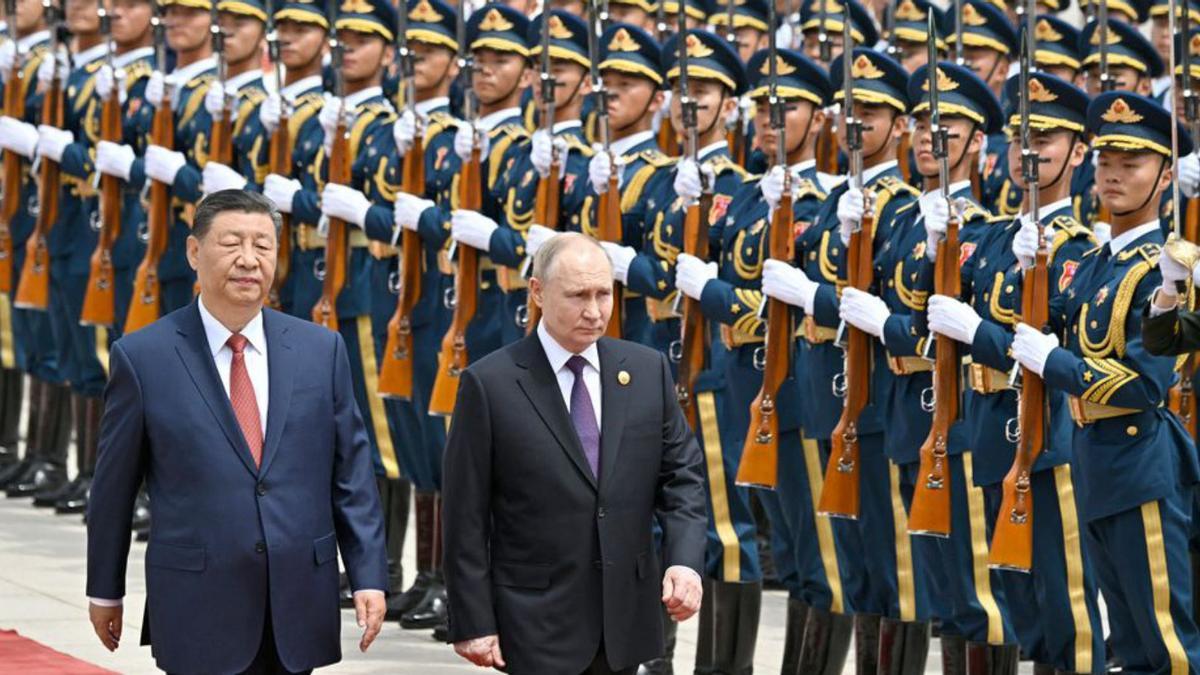The visit of Vladimir Putin to Beijing allowed Russia to showcase the good moment of the strategic alliance with China, which, among other things, made it easier for Moscow to mitigate the impact of economic sanctions imposed by the United States and the European Union. Union after the invasion of Ukraine. Without Xi Jinping’s support, the erosion of the Russian economy would have been stronger, and the lack of essential components to meet battlefield needs would have weakened Russia’s ability to withstand an already protracted war of attrition. China has arguably been a lifeline that has come to Russia’s support and, despite the ban on Russian funds in Western entities, has prevented the worst omens from becoming a reality.
Exporting energy at political prices and the facilities agreed upon with China to enable its companies to invest in Russia is the bill that Putin is willing to pay. Less expensive than it seems because during two long years of continuous war, the Kremlin found alternative areas of action to the (eventual partial) cancellation by the EU of energy imports of Russian origin. The ability to adapt to conditions that few thought possible, which went in parallel with the adaptation of military operations on the Ukrainian front, with frequent changes in the command structure.
In good harmony between Moscow and Beijing, they are encouraging their joint attempt to compete for dominance in the United States. The trade war between the two countries with China escalated during Joe Biden’s presidency. For this reason, Putin and Xi agreed to express their willingness to stop the war through an unspecified political solution, which in the mind of the Russian president means, at the very least, the annexation of the occupied territories, but its content is not detailed. Chinese leader. Because the problem for the Asian superpower is to give continuity to this alliance without hindering the progress of its first goal, which is Europe: the New Silk Road. In Brussels, there are more skeptical than positive opinions about the project given the great competitiveness enjoyed by Chinese companies, but Xi Jinping is not abandoning this project.
This contradiction between the stable alliance with Russia and his goal of intensifying the trade relationship with Europe explains the Chinese President’s decision not to supply weapons to Putin, which the United States acknowledges, and to limit himself to supplying “inputs.” To manufacture it. It is difficult to predict how long-lasting and consistent this dual approach will be, but the Chinese reaction every time the Kremlin mentioned eventually resorting to a nuclear arsenal is worth noting: in all cases, some Chinese officials have come out to this step declaring themselves completely against this possibility. It is a position that has always been consistent in similar terms felt in the West, a fact that must be taken into account when it comes to measuring the solidity of the Russian-Chinese understanding, which is not without contradictions and is clearly asymmetric: the Chinese economy is second among others. As for the Russian planet, for the purposes of presence in international markets, it is nothing more than an energy monoculture. Another fact that must be taken into consideration.

“Freelance social media evangelist. Organizer. Certified student. Music maven.”



